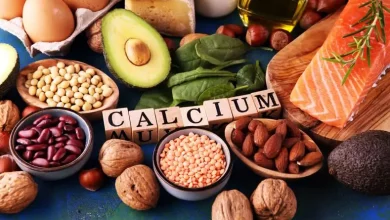
Weight loss injections have become increasingly popular as a powerful tool for shedding excess pounds. In this comprehensive article, we’ll delve into the latest developments in weight loss injections, including the most effective options available in 2024.
1. Types of Weight Loss Injections
Semaglutide (Wegovy®

Semaglutide, marketed as Wegovy®, continues to be a leading weight loss injection. Recent data from randomized controlled trials (RCTs) indicate that Wegovy® can support weight loss of up to 20% after one year. It contains a hormone that reduces appetite and promotes fat breakdown. Wegovy® is suitable for adults with obesity or those struggling with excess weight.
Pros and Cons of Semaglutide (marketed as Wegovy®)
Let’s explore the pros and cons of Semaglutide (marketed as Wegovy®), the newest weight loss medication that came on the market in June 2021.
Pros:
- Effective Weight Loss: Clinical trials have shown that Semaglutide can lead to significant weight loss of up to 15% of body weight. This is a remarkable result for individuals struggling with obesity.
- Once-Weekly Injection: Wegovy is administered as a once-weekly injection, making it convenient for patients who prefer not to take daily medications.
- BMI Criteria: It is recommended for adults with a BMI of > 30 or a BMI of > 27 with weight-related health concerns.
- Long-Term Use: Wegovy is suitable for ongoing weight management and can be used long term.
Cons:
- Nausea: The most common side effect of Wegovy is nausea, often due to feeling more full when starting the medication.
- Other Side Effects: Additional side effects include:
- Diarrhea
- Vomiting
- Constipation
- Stomach (abdomen) pain
- Headache
- Tiredness (fatigue)
- Upset stomach
- Dizziness
- Feeling bloated
- Belching
- Gas
- Stomach flu
- Heartburn
- Cost: Wegovy can be expensive, which can be a significant concern for patients. Some individuals have reported difficulty affording it even with coupons.
Important Notes:
- Treatment with Wegovy is limited to two years, and its long-term risks are still being studied.
- Serious side effects, such as gall bladder disease, inflammation of the pancreas, and kidney issues, are rare but need to be considered.
- If you experience nausea, it’s advisable to contact your healthcare provider for guidance. You can also try eating bland, low-fat foods, avoid lying down after meals, eat more slowly, and increase water intake if feeling dehydrated.
Remember to consult with your healthcare provider before starting any new medication. They can provide personalized advice based on your specific health needs. 😊
Tirzepatide (Mounjaro)

In 2024, the best weight loss injection available in the UK is tirzepatide, sold under the brand name Mounjaro. RCTs have shown that Mounjaro supports an average weight loss of around 25% after one year. Tirzepatide is a promising addition to the weight loss arsenal.
Pros and Cons
Let’s delve into Tirzepatide, which is marketed under the brand names Mounjaro and Zepbound. This antidiabetic medication serves two purposes: treating type 2 diabetes and aiding in weight loss. Here are the key details:
- Type 2 Diabetes Treatment:
- Mounjaro (Tirzepatide) is administered via subcutaneous injections (under the skin).
- It is a glucagon-like peptide-1 (GLP-1) and glucose-dependent insulinotropic polypeptide (GIP) receptor agonist.
- How does it work? By acting like GLP-1 and GIP, two hormones released by your gut after eating, it helps control blood sugar levels.
- Weight Loss:
- Zepbound, which contains the same active ingredient (tirzepatide), is specifically approved for weight loss.
- In clinical trials, patients using tirzepatide for weight loss lost a mean of:
- 20.9% of their body weight with a 15 mg dose over 72 weeks (compared to 3.1% for placebo).
- The trial included overweight and obese patients with weight-related health issues but excluded those with diabetes.
- Mounjaro, on the other hand, is FDA-approved for type 2 diabetes and not specifically for weight loss.
- Mechanism of Action:
- Mounjaro is the first GIP and GLP-1 receptor agonist.
- It works by:
- Helping the pancreas produce more insulin.
- Reducing sugar production by the liver.
- Slowing down the rate at which food passes through the body, leading to a feeling of fullness.
- Activation of the natural incretin hormones, GIP and GLP-1, regulates blood sugar levels.
- Cost:
- The cost of Mounjaro varies depending on your insurance plan and the pharmacy you use.
- You may be eligible for a Mounjaro savings card or coupon.
Remember to consult your healthcare provider before starting any new medication. They can provide personalized advice based on your specific health needs. 😊
2. How Weight Loss Injections Work

Mechanism of Action
Both Wegovy® and Mounjaro belong to a class of medications called GLP-1 receptor agonists. They work by:
- Suppressing appetite
- Slowing down stomach emptying
- Increasing feelings of fullness
3. Benefits and Considerations
Benefits
- Significant Weight Loss: Wegovy® and Mounjaro have demonstrated substantial weight reduction in clinical trials.
- Cardiovascular Benefits: Wegovy® has been approved to lower the risk of major cardiovascular events in adults with heart disease and obesity or overweight.
- Improved Metabolic Health: Weight loss injections can positively impact blood sugar levels and lipid profiles.
Considerations
- Cost: Weight loss injections may be expensive, so it’s essential to check insurance coverage.
- Side Effects: Common side effects include nausea, diarrhea, and headache.
- Consultation: Always consult a healthcare provider before starting any weight loss treatment.
4. Safety and Precautions
Thyroid Tumors
- Wegovy® and Mounjaro may cause thyroid tumors, including cancer. Seek medical attention if you experience neck swelling, hoarseness, or trouble swallowing.
- Do not use these injections if you have a history of thyroid cancer or certain endocrine conditions.
Lifestyle while using weight loss injections

Complementing weight loss injections with lifestyle changes is essential for achieving long-term success. Here are some effective strategies:
- Dietary Modifications:
- Caloric Deficit: Focus on consuming fewer calories than your body expends. Calculate your daily caloric needs and create a sustainable caloric deficit.
- Balanced Diet: Prioritize whole foods, including fruits, vegetables, lean proteins, whole grains, and healthy fats. Minimize processed foods, sugary snacks, and high-calorie beverages.
- Portion Control: Be mindful of portion sizes to avoid overeating.
- Hydration: Drink plenty of water; sometimes thirst is mistaken for hunger.
- Physical Activity:
- Regular Exercise: Incorporate both aerobic exercises (like walking, running, or cycling) and strength training (to build muscle and boost metabolism).
- Consistency: Aim for at least 150 minutes of moderate-intensity aerobic activity or 75 minutes of vigorous-intensity activity per week.
- Non-Exercise Activity: Increase daily movement by taking the stairs, walking more, or doing household chores.
- Behavioral Changes:
- Mindful Eating: Pay attention to hunger cues and eat slowly. Avoid emotional eating.
- Food Journaling: Keep track of what you eat to identify patterns and make informed choices.
- Stress Management: Chronic stress can hinder weight loss. Practice relaxation techniques like meditation, yoga, or deep breathing.
- Sleep Quality:
- Aim for 7-9 hours of quality sleep per night. Lack of sleep affects hormones related to hunger and satiety.
- Social Support:
- Share your weight loss journey with friends, family, or a support group. Having a strong social network can keep you motivated.
- Mindset and Attitude:
- Realistic Goals: Set achievable weight loss goals. Gradual progress is more sustainable.
- Positive Self-Talk: Replace negative thoughts with encouraging ones.
- Patience: Weight loss takes time; avoid quick fixes.
- Avoid Extreme Diets:
- Crash diets or extreme restrictions are not sustainable. Aim for gradual changes that you can maintain long term.
How can I stay motivated during weight loss injections efforts?

Staying motivated during weight loss efforts can be challenging, but there are effective strategies to keep you on track. Here are some ways to stay motivated:
- Determine Your Why:
- Clearly define why you want to lose weight. Write down all the reasons that matter to you. Whether it’s preventing health issues, feeling confident, or fitting into a favorite outfit, having a strong “why” will keep you committed.
- Set Realistic Expectations:
- Avoid setting unattainable goals. Aim for gradual progress—losing 1–2 pounds (0.5–1 kg) per week is a healthy rate. Achievable goals lead to feelings of accomplishment and prevent frustration1.
- Focus on Process Goals:
- Instead of only looking at the end result, set process goals. These are the steps you take daily to reach your desired outcome. For example, commit to exercising three times a week or eating more vegetables2.
- Choose a Plan That Fits Your Lifestyle:
- Find a weight loss plan that aligns with your daily routine and preferences. Sustainability is key to long-term success3.
- Keep a Weight Loss Journal:
- Document your progress, feelings, and challenges. Writing about your journey helps you stay accountable and provides insights into what works for you4.
- Celebrate Your Successes:
- Acknowledge even small achievements. Celebrate milestones like losing the first 5 pounds or consistently sticking to your exercise routine5.
- Find Social Support:
- Share your weight loss journey with friends, family, or a support group. Having a network of people who encourage and understand your goals can boost motivation.
- Make a Commitment:
- Publicly commit to your weight loss efforts. Whether it’s telling a friend or posting on social media, accountability can drive consistency.
Remember that motivation fluctuates, but these strategies can help you stay focused and resilient on your weight loss journey. 😊
How can I maintain my motivation during plateaus?

Experiencing a weight loss plateau can be frustrating, but there are effective ways to stay motivated and overcome this hurdle. Here are some strategies to help you maintain your focus during plateaus:
- Reassess Your Habits:
- Take a closer look at your food and activity records. Ensure that you haven’t unintentionally loosened the rules. For example, check if you’ve been having larger portions, consuming more processed foods, or reducing your exercise routine. Research suggests that occasional rule deviations contribute to plateaus.
- Set Realistic Expectations:
- Understand that weight loss plateaus are a natural part of the journey Celebrate non-scale victories, such as improved energy levels, better fitness, and clothing fit, even if the scale isn’t moving as expected.
- Stay Consistent:
- Consistency is key. Stick to your healthy eating plan and exercise routine. Plateaus often resolve themselves if you remain committed to your habits.
- Mindset and Self-Compassion:
- Avoid negative self-talk or self-blame. Instead, focus on acknowledging the progress you’ve made and the healthy habits you’ve establishedPractice self-compassion and understand that plateaus happen to everyone.
- Explore New Activities and Challenges:
- Switch up your exercise routine. Try a new workout or take your fitness outdoors. Variety can reignite motivation.
- Experiment with different healthy foods or cooking techniquesMeal prep with a new cuisine to keep things interesting.
- Focus on Long-Term Health:
- Remember that weight loss isn’t just about the number on the scale. Prioritize overall health—better sleep, reduced stress, and improved well-being are valuable outcomes.
Stay patient and committed. Plateaus are temporary, and with persistence, you’ll continue making progress toward your goals! 😊
Conclusion
Weight loss injections offer a promising solution for those seeking effective and sustainable weight management. Consult your doctor to determine the best approach for your individual needs. Remember that lifestyle changes, including diet and exercise, remain essential for long-term success.
Frequently Asked Questions About Weight Loss Injections
1. What Are Weight Loss Injections?
Weight loss injections are medications administered via injection to aid in weight reduction. They work by targeting specific mechanisms in the body to promote fat loss and control appetite.
2. Which Weight Loss Injections Are Currently Available?
As of 2024, two notable weight loss injections are:
- Wegovy® (Semaglutide): A once-weekly injectable medication that reduces appetite and promotes fat breakdown.
- Mounjaro (Tirzepatide): A promising option with significant weight loss effects.
3. How Do Weight Loss Injections Work?
Weight loss injections primarily belong to the GLP-1 receptor agonist class. They:
- Suppress appetite
- Slow stomach emptying
- Increase feelings of fullness
4. Are Weight Loss Injections Safe?
While generally safe, they may have side effects such as nausea, diarrhea, and headache. Consult your doctor to assess safety based on your individual health profile.
5. What Results Can I Expect?
Clinical trials show substantial weight loss with Wegovy® and Mounjaro—up to 20% and 25%, respectively, after one year.
6. How Much Do Weight Loss Injections Cost?
Cost varies, and insurance coverage plays a crucial role. Discuss pricing and options with your healthcare provider.
7. Can I Use Weight Loss Injections If I Have Thyroid Issues?
Individuals with a history of thyroid cancer or specific endocrine conditions should avoid these injections due to potential thyroid tumor risks.
8. What Lifestyle Changes Should I Make Alongside Injections?
Weight loss injections complement lifestyle changes. Focus on a balanced diet, regular exercise, and stress management.
9. How Long Should I Use Weight Loss Injections?
Duration varies. Some use them short-term for rapid weight loss, while others incorporate them into long-term weight management plans.
10. What Are Users Saying About Weight Loss Injections?
Remember that weight loss injections are just one tool—consult your doctor to create a personalized weight loss strategy.




